Commercial Roofs for Industrial Buildings in New England

Your roof isn’t just a protective cover, it’s a critical component of your industrial building’s infrastructure.
From energy efficiency to structural integrity, the right roofing system can make a measurable impact on your operations. In New England states like Massachusetts, Connecticut, and Rhode Island, weather extremes and regulatory expectations demand roofing solutions that are not only durable but smart. When it comes to commercial roofs for industrial buildings, choosing the right system is more than a construction decision, it’s a strategic investment.
Why Industrial Buildings Require Specialized Roofing?
Industrial buildings, such as factories, warehouses, distribution centers, and manufacturing plants, have unique roofing needs that differ from standard commercial properties. These structures often cover massive square footage, support heavy rooftop equipment, and operate in conditions where climate control is vital. A compromised roof can lead to energy loss, equipment damage, or even production shutdowns. In New England, harsh winters, high winds, and summer humidity require roofing systems engineered to withstand year-round weather abuse while keeping operational costs low.
That’s why working with a specialized roofing provider is non-negotiable.
Best Commercial Roofing Systems for Industrial Buildings
Choosing the right roofing system means balancing cost, durability, energy performance, and compatibility with solar solutions. When evaluating commercial roofs for industrial buildings, it’s essential to consider materials and designs that can withstand the unique climate demands of the Northeast. Here are the most effective options for industrial buildings in this region:
TPO Roofing Systems
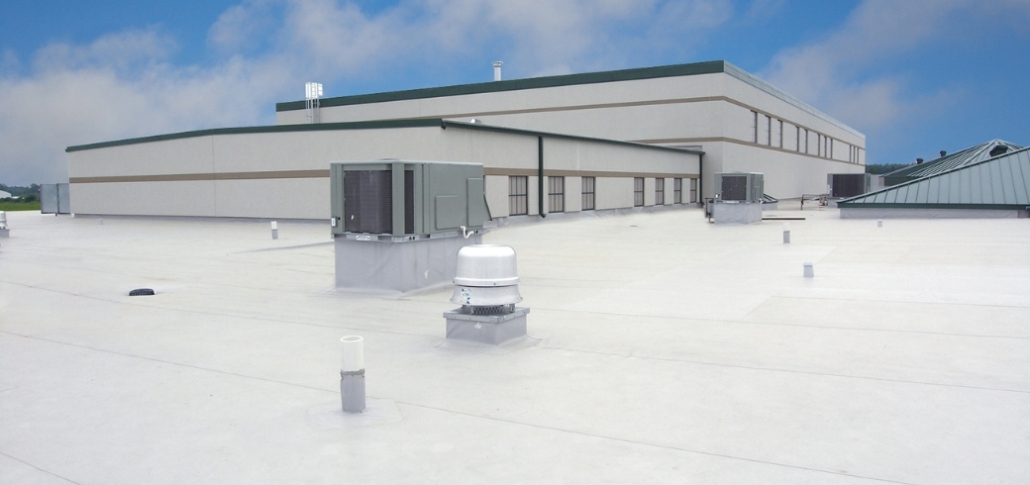
Thermoplastic Polyolefin (TPO) is a single-ply membrane roofing system known for its white, reflective surface that reduces heat absorption. It’s ideal for large, flat-roofed buildings looking to lower cooling costs and meet energy-efficiency standards. TPO performs exceptionally well in the variable New England climate. For more details on benefits and installation, explore our TPO roof installation guide or learn more about cool roofing from Energy.gov.
In addition to energy savings, TPO roofing offers long-term durability and easy maintenance. Its heat-welded seams create a strong, watertight bond, minimizing the risk of leaks and extending roof life. Resistant to UV rays, chemical exposure, and ponding water, TPO is a low-maintenance solution that supports both sustainability goals and operational efficiency. With professional installation, it becomes a reliable, cost-effective choice for commercial properties throughout Connecticut and Massachusetts.
EPDM Roofing
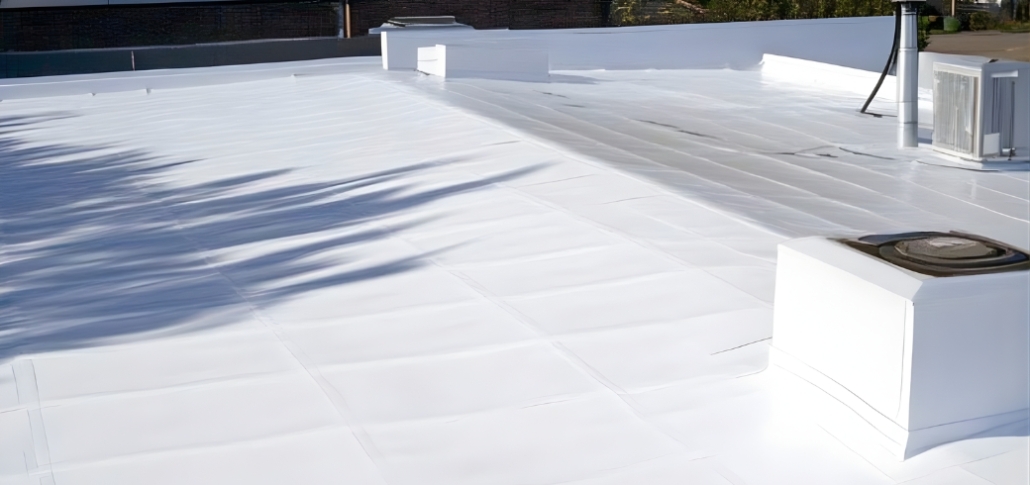
Ethylene Propylene Diene Monomer (EPDM) is a synthetic rubber roofing membrane prized for its durability and flexibility. It holds up against temperature extremes, ozone, and UV rays. This low-maintenance system is one of the most cost-effective options for industrial roofs and has a lifespan of 25–30 years.
Beyond its resilience, EPDM is highly adaptable to a variety of roof shapes and sizes, making it ideal for warehouses and manufacturing facilities across Connecticut and Massachusetts. Its ability to expand and contract with changing temperatures prevents cracking, while simple repairs and minimal upkeep reduce long-term costs. When installed by certified professionals, EPDM provides a reliable, energy-efficient solution that protects your investment and ensures consistent performance for decades.
Learn how EPDM compares to other flat roof systems for commercial buildings.
Metal Roofing
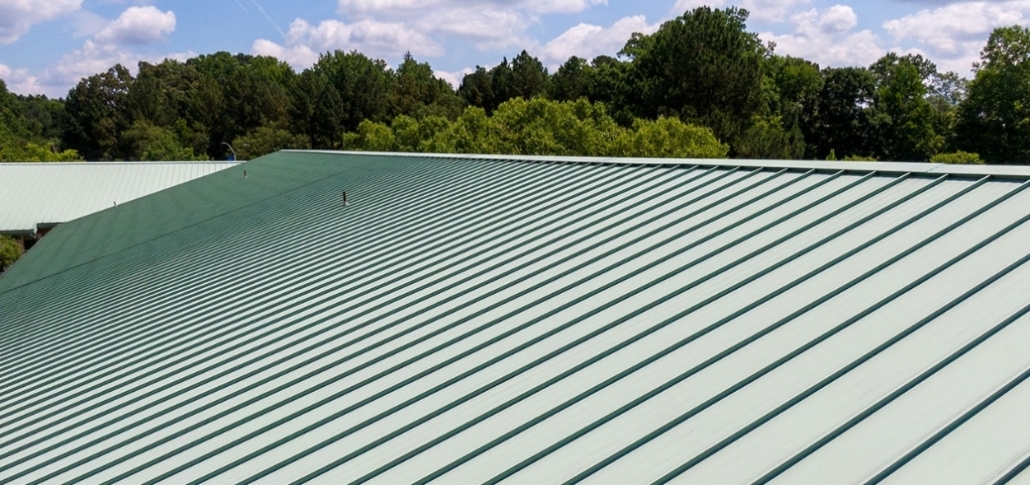
Metal roofing systems are incredibly resilient and can last 40+ years with minimal maintenance. Their fire-resistant and wind-resistant properties make them ideal for facilities with heavy equipment or sensitive inventory. Metal roofs also support solar installations and offer excellent drainage for sloped designs. Read our full comparison of the best commercial roofing materials to see how metal performs.
In addition to durability, metal roofing provides energy efficiency through reflective coatings that reduce heat absorption, helping to lower cooling costs year-round. Available in a variety of profiles and finishes, metal roofs combine strength with visual appeal, enhancing both performance and curb appeal. Professionally installed, they are a long-term investment that safeguards your property against New England’s variable weather while providing a sustainable, low-maintenance solution for commercial buildings.
Duro-Last Roofing
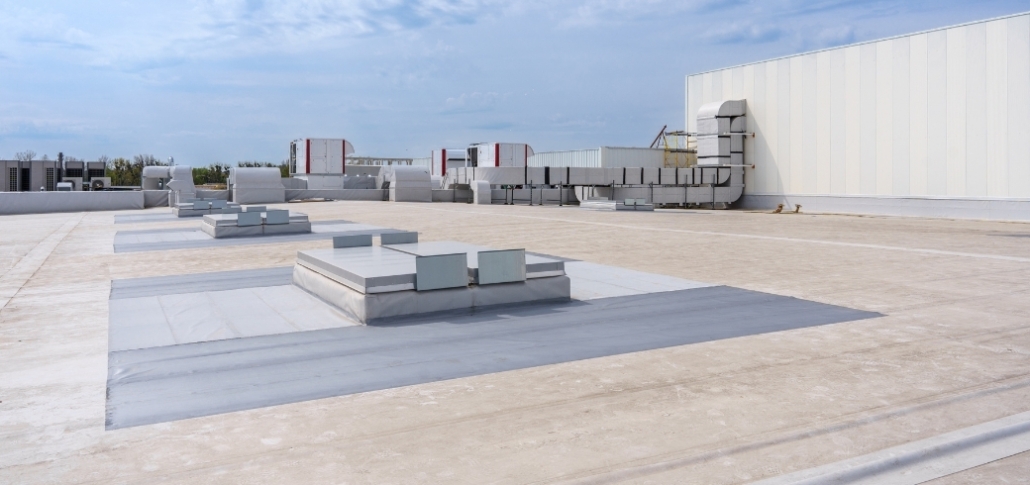
Duro-Last is a prefabricated PVC roofing system custom-made for each building. It minimizes onsite waste and installation time while offering high reflectivity and resistance to punctures and chemicals. For industrial clients with strict deadlines and performance needs, Duro-Last is a premium choice.
Its precision-fabricated panels reduce seams, creating a watertight, durable roof that stands up to harsh weather and heavy foot traffic. Energy-efficient and fully compatible with solar installations, Duro-Last provides a sustainable solution for commercial properties. When installed by certified professionals, it delivers long-term protection, minimal maintenance, and reliable performance—making it an excellent investment for warehouses, logistics centers, and other industrial facilities.
Green & Solar-Ready Roofs
As industrial properties look to reduce their carbon footprint and control energy costs, green and solar-ready roofing systems are gaining traction. These roofs are designed to accommodate solar panel installations and can qualify for federal and state incentives, including the Investment Tax Credit (ITC) and MACRS depreciation. Learn if your facility qualifies by reading our guide: Is My Roof Suitable for Commercial Solar Panels?
Key Factors to Consider When Choosing an Industrial Roof
Not all roofing systems fit every industrial facility. When selecting commercial roofs for industrial buildings, decision-makers should evaluate several factors to ensure long-term performance, safety, and value.
- Roof size and design: Large, flat roofs may benefit more from membrane systems, while sloped roofs might favor metal.
- Climate conditions: New England weather requires high wind uplift ratings, snow load capacity, and excellent drainage.
- Building use: Facilities with sensitive equipment need roofs with superior insulation and leak protection.
- Energy goals: Reflective and solar-ready materials can significantly cut energy costs.
- Budget and ROI: Long-term savings and tax incentives should weigh into upfront cost decisions. For a breakdown of expenses, visit our guide on commercial roof replacement costs.
Common Roofing Challenges in Industrial Environments
Industrial roofs face unique wear and tear, including:
- Ponding water from poor drainage on flat roofs
- Membrane punctures from rooftop HVAC maintenance
- Thermal expansion from equipment heat or climate change
- Aging materials that haven’t been inspected or replaced on schedule
Understanding the signs of roof failure is key, review our insights on how to fix a commercial roof before minor issues become major repairs.
National Roofing & Solar’s Proven Installation & Inspection Process
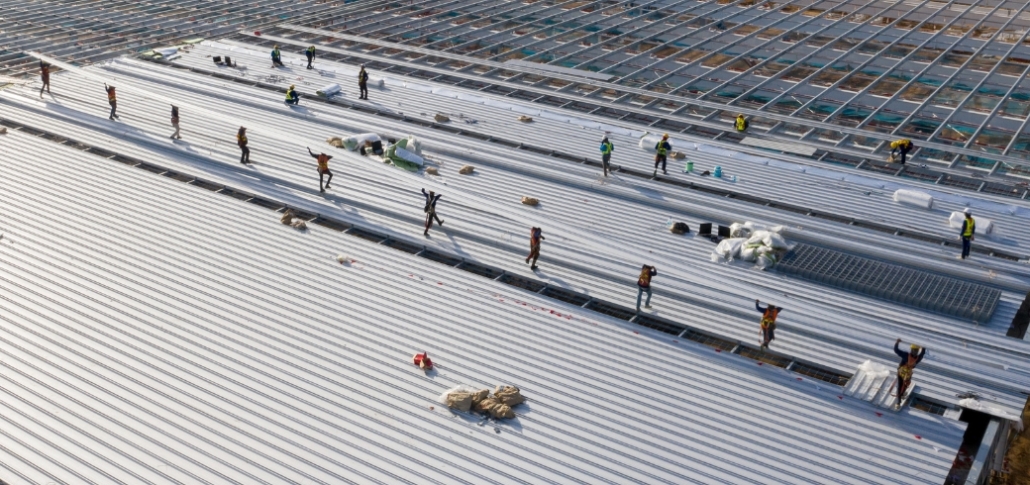
Our process ensures every industrial roof is built to last:
- Free Onsite Inspection: We assess your existing roofing system, structural integrity, and energy performance.
- Detailed Roof Report: You receive a comprehensive evaluation and tailored system recommendations.
- Custom Design & Quote: We engineer a solution based on building use, budget, and long-term ROI.
- Installation by Certified Crews: Our team ensures safety, speed, and compliance with all local codes.
- Post-Install Support: Ongoing maintenance options and solar-readiness assessments are included. To understand our process in full, visit our guide on the commercial roof replacement process.
FAQs
TPO and EPDM are both excellent choices, offering energy efficiency and weather resilience. Learn how these systems compare in our article on the types of commercial flat roofs.
Depending on material, 20–40+ years with regular maintenance.
Most flat and metal roofs are solar-compatible, but structural assessments are necessary.
Structural analysis, material review, moisture testing, and energy-efficiency evaluation.
Request A Free Quote
Speak To Our Roofing Specialists Today!
National Roofing & Solar offers expert commercial roof replacements, leak repairs, and solar upgrades, maximizing energy efficiency and ROI.
Conclusion
The roof over your industrial facility isn’t just a cap, it’s a high-performing system that can enhance energy savings, reduce downtime, and support your sustainability goals. Selecting the right commercial roofs for industrial buildings starts with expert insight and ends with precision installation.
Contact National Roofing & Solar today for your free inspection and roof report and find out if your building is ready for a smarter, more efficient roofing solution.


